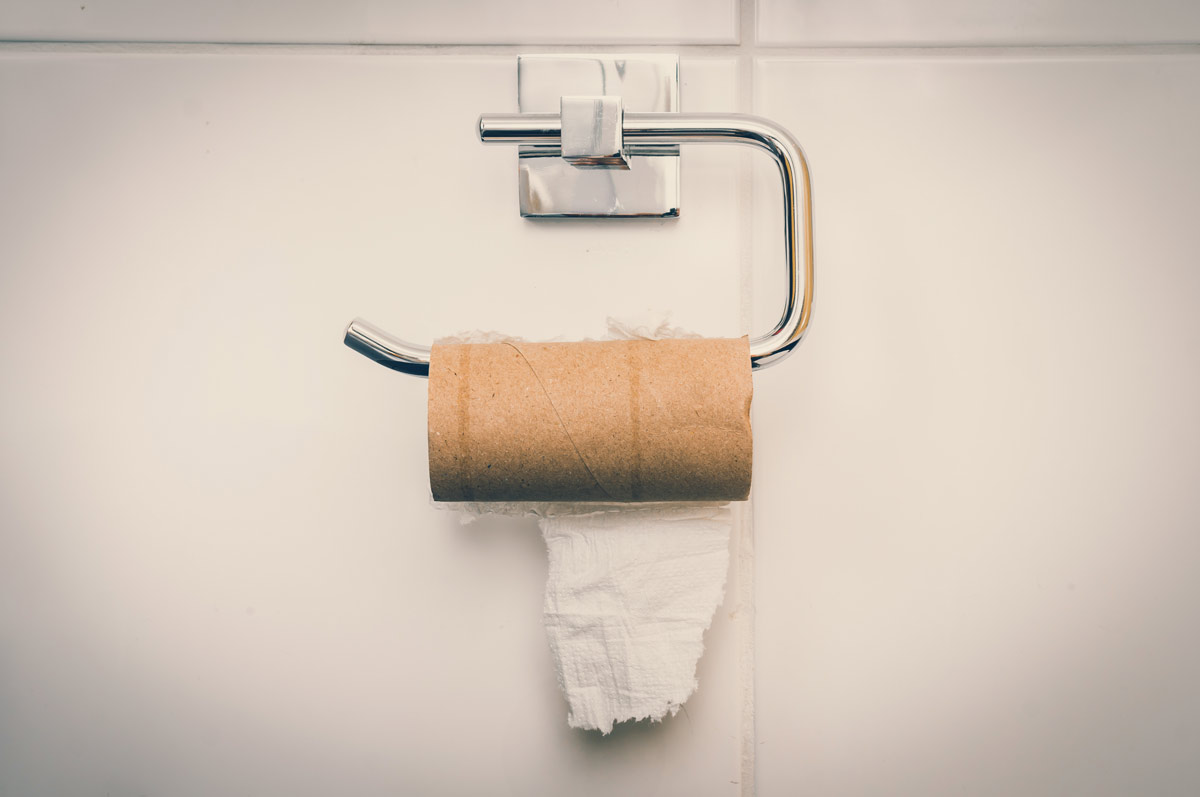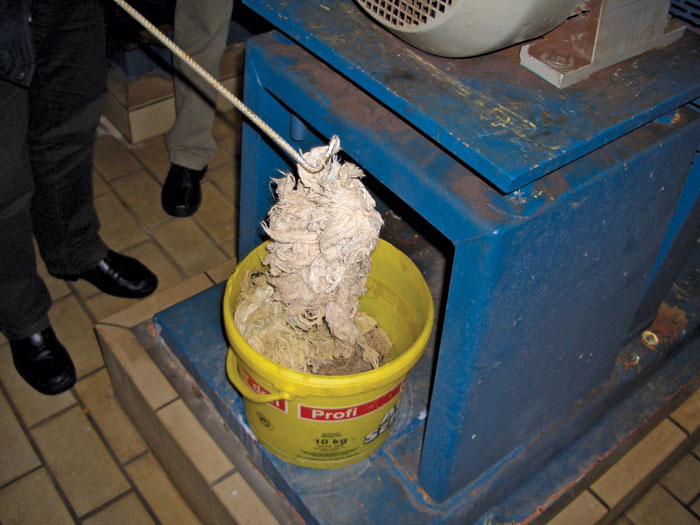
Local supermarkets are seeing a shortage of toilet paper as the world responds to the coronavirus and shoppers stock up on household products in preparation for staying home. This could mean an increase in usage of "flushable" wipes, tissues and paper towels as an alternative, which ultimately can have catastrophic effects on wastewater systems.
We spoke to Stacy Belanger, product manager for JWC Environmental, about the threat this poses to wastewater treatment and how companies are responding.
Pumps & Systems: What kinds of problems should the industry anticipate from these products being flushed?
Belanger: Actually, we are already seeing indications of the problems due to flushing wipes. There has been an increased number of news reports and posts on social media about sewer pump clogs since the toilet paper shortage. The assumption is people are using alternates such as baby wipes, wet wipes, paper towels and even shredded clothing. Wipes, paper towels and clothing do not disintegrate in the sewer like toilet paper. Rather they collect on pumps causing clogs and also mix with fats, oils, grease and other sewage to form fatbergs in pipes.
P&S: Will you breakdown what products should be flushed versus what products should not be flushed?
Belanger: It’s very simple. Only the 3Ps should be flushed—pee, poo and (toilet) paper. Of course, we recognize what actually gets flushed is whatever one can flush down the toilet without immediate consequences, whether its wipes, cotton swabs, hair, or the occasional children’s toy. That is why we developed our Wipes Ready technology. It effectively shreds the materials that our wastewater systems were not designed to handle.

P&S: How quickly do you anticipate seeing the impact of an increased usage of products that should not be flushed?
Belanger: As mentioned earlier, we’re already seeing the impact. There have been more news reports and social media posts of fatbergs and pump clogs since the toilet paper shortage. With a shortage of toilet paper, people will use alternate materials that do not disintegrate in the sewer system like toilet paper is designed to do. Pumps in the sewer system are not designed to pass these large solids, which leads to accumulation of material and an eventual pump clog.
P&S: Do we have the labor in place to make repairs for systems that are negatively impacted by these materials?
Belanger: Wastewater treatment is an essential service by any definition. Therefore, the utility crews who normally clear pump clogs and remove fatbergs will remain on the job even as cities, counties and states encourage people to limit interaction, and in some areas, shelter in place. Here in California, a statewide order has been issued to help slow the spread of COVID-19. The order directs all individuals living in the state of California to stay home but excludes people who work in 16 federal critical infrastructure sectors, including wastewater.
P&S: How is JWC Environmental preparing to respond to these concerns?
Belanger: JWC has implemented social distancing and increased sanitation cleaning at its facilities. Many of our employees are telecommuting. With these practices, we are able to continue to support our customers and manufacture grinders and other equipment that are important lines of defense against pump clogs and fatbergs. Our grinders with Wipes Ready technology are suited to shred wipes to prevent sewage clogs. During our development of Wipes Ready, we learned that shredding wipes into long strips was not always enough to prevent clogs. These long strips could re-weave into clumps when mixed with hair and grease, therefore still clogging pumps and pipes. Our grinders shred wipes into a confetti cut that is too small to re-weave into clumps, allowing equipment to continue to run more effectively.
P&S: Is there anything else you would like to add?
Belanger: We want everyone to follow safe practices—practice good hygiene, maintain social distancing, stay home if you feel unwell and seek appropriate medical help. And make our wastewater treatment crews jobs easier by flushing only the 3Ps so they do not need to unclog pumps and clean out fatbergs.

